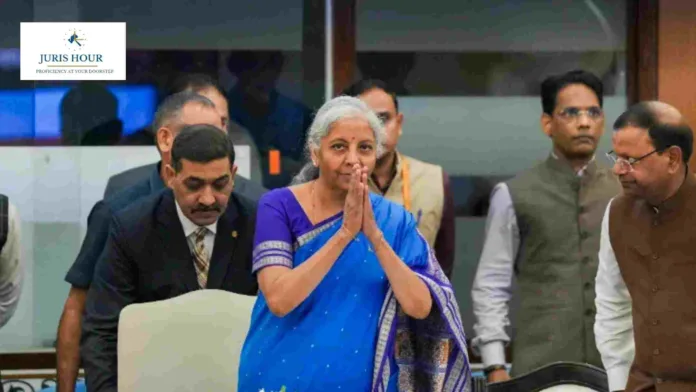The Goods and Services Tax (GST) Council, chaired by Union Finance Minister Nirmala Sitharaman, announced sweeping changes in GST rates across a wide spectrum of goods and services during its 56th meeting.
The revised GST rates will come into effect from September 22, coinciding with the first day of Navratra. However, pan masala, gutka, and cigarettes will continue to be taxed at existing rates until loans taken under the compensation cess are fully discharged.
Relief for Households: Essentials Moved to 0%
To ease the burden on households, the Council has reduced GST on several essential food and daily-use items.
- From 5% to NIL GST: Ultra-high temperature (UHT) milk, chenna/paneer, and all Indian breads, including parotas.
- From 12–18% to 5%: Hair oil, toilet soaps, shampoo, toothbrushes, bicycles, tables, chairs, namkeen, pasta, instant noodles, coffee, cornflakes, butter, ghee, 12 specified bio-pesticides, handicrafts, marble, granite blocks, diagnostic kits, renewable energy devices (windmills, bio-energy plants, PV cells, solar heaters), and spectacles. Several drugs and medical supplies are also covered under this relief measure.
Health Sector Gains: GST Exemptions on Drugs & Insurance
In a major step to make healthcare more affordable, 33 life-saving drugs will now attract 0% GST, down from 12%.
Additionally, the Council has exempted individual life and health insurance premiums, including floater policies and those for senior citizens, from GST — a move expected to significantly reduce costs for households.
Automobiles & Appliances: Major Rate Rationalisation
The automobile and appliance sectors, long considered high-tax segments, witnessed notable rate cuts:
- From 28% to 18%: Air-conditioners, televisions (all sizes, including those above 32 inches), small cars, motorcycles below 350cc, tractors, buses, trucks, three-wheelers, cement, forestry equipment, and all auto parts.
Higher Taxes for Sin and Luxury Goods
Balancing the tax relief, the Council imposed a 40% GST rate on sin and luxury items. This highest slab will now apply to:
- Tobacco and related products: Pan masala, cigarettes, chewing tobacco, and gutka.
- Sugary beverages: Aerated water with added sugar, carbonated drinks, and fruit-based beverages with added juice.
- Luxury vehicles: Mid-size and large cars, motorcycles above 350cc, aircraft for personal use, and yachts.
Balancing Growth with Revenue
Speaking after the meeting, Finance Minister Sitharaman said the restructuring aimed at “easing the tax burden on households, boosting consumption, and correcting anomalies such as the inverted duty structure in several sectors, while ensuring adequate revenue from luxury and sin goods.”
Industry watchers hailed the rationalisation as a game-changer for both consumers and manufacturers, with sectors like FMCG, healthcare, renewable energy, and automobiles likely to see immediate benefits. At the same time, the steep 40% levy on tobacco, sugary drinks, and luxury goods underscores the government’s dual focus on public health and progressive taxation.

